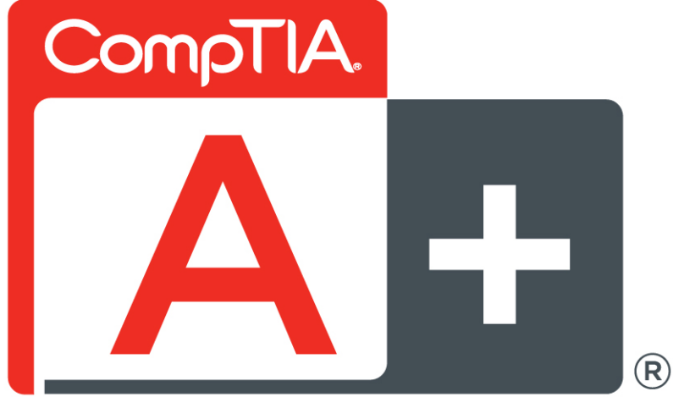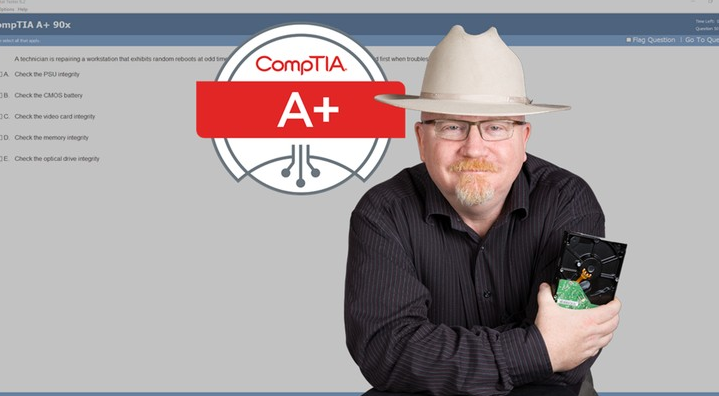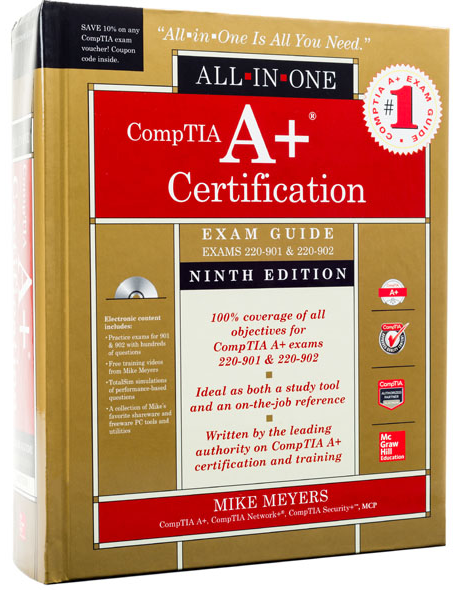CompTia certifications are some of the leading certs in the IT industry. But what type of job will the SY0-401 exam get you? In this article we show you five stellar jobs that you can snag by investing in some serious security training. Cybersecurity also known as Information Security (Infosec) is emerging as a critical field in both civilian and military organizations and job opportunities are emerging every single day. Certifications usually involve vague titles and that can make it hard to visualize an actual career path. Read on to learn about 5 great jobs you can get with Security+ certification!
Are these jobs actually any good?
Of course! They are challenging, exciting, and pay very well. Even entry-level security jobs can be worlds better than other entry-level work. These are just a few options as well as the overall Information Technology industry is just now beginning to understand the need for highly skilled security workers.
Systems Administrator
A Systems Administrator or Sysadmin is an IT professional with catch-all job. Basically the broad scope of a systems administrator is planning, implementing, and maintaining computer and server systems. This broad designation means that one Sysadmin might maintain a pre-set up school network while another might run a small business and be responsible for every single aspect of creating a network from the ground up. So specialized system administrators who run a network, server room, and keep a system free from malware and cyber attacks are becoming more commonplace. As a job you normally get great control in what you can and can’t do and the training in security is a great bargaining tool during interviews. Those with basic A+ struggle to compete against someone who can offer top-quality security! System admin jobs are quite unique depending on the place but will always need someone with security know-how.

Information Security Analyst
Security Analysts work in a range of security related job fields. From Data security to engineering new security systems, the work in this category is quite far reaching. A typical information security analyst may install firewalls and antivirus programs while testing and measuring the security of a network. This is a foundational role that you can build upon for years allowing you to springboard into careers such as a CEH (Certified Ethical Hacker). Requirements differ from job to job but a foundation in CompTia Security+ is the perfect start to getting your foot in the door for analyst jobs. As you get more advanced in Infosec Analyst roles, the different job titles get more specific and require unique training. These also can result in intriguing positions where you are do far more than monitor security with known tools, you create new ways to keep your clients safe and data secure. This is one of the best starting paths for someone who is serious about civilian security work.
Military or Industrial Infosec jobs (IT Specialist)
Infosec is ramping up to be the next big thing in warfare. While a specific title is hard to nail down for military and specialized security jobs (The vagueness alone of being called an IT Specialist helps increase security) there is a need emerging for trained IT Professionals that are able to work in sensitive environments. Demand increases steadily every year but we are looking at an exponential jump in the need for qualified candidates who can solve some of the biggest security problems of the future. From securing the servers at Lockheed Martin to operating as a civilian contractor on a top-secret military base, cybersecurity jobs are numerous and rewarding. Corporations, especially large-scale ones such as Boeing, need top-notch security for everything from financial data to technical design plans. A cursory look at usajobs.gov shows hundreds of opportunities to work in Infosec. One of the cool aspects of this career path is the need for Top Secret clearance, Q clearance, or other fancy titles. You are privy to the weight and responsibility of national or industrial secrets. It takes work and integrity but can pay six figures quickly into your career.

Penetration Tester
Penetration Testing or a Pen Test is an authorized attack on a network with the goal of finding and exploiting a security flaw. This is usually done to see if the ability to access features and data within a system is capable through a coordinated cyber attack. One of the most interesting career paths available in Information Security is Penetration Testing. A Pen Tester has a narrow focus of finding security flaws and exploiting them in order to see how stable and secure a system is. This is often confused with Ethical Hacking, an informal version of pen testing that includes more destructive possibilities and isn’t always authorized. Pen Testers are working through a company to constantly improve and work upon the systems that they have in place. SYO-401 gives the foundational knowledge to start basic Pen Testing and springboard into a career where you get paid to try and break things. Sounds fun, eh? Normally CompTIA certification is paired with some extra training such as CEH but you can get an entry-level position Pen Testing through basic certification and work your way up to the more unique roles.
Independant Contractor
There is a niche market for setting up security solutions for small business and individuals who distrust or don’t need a large scale corporation to help them with security issues. They may even want a professional on retainer during the event of a cyber attack. CompTia Security+ helps you learn the skills necessary for starting your own little security business and with the ease of social media marketing, it isn’t a stretch to think about that as the next career move. Places where those who tend to lack the skills that come from a digital education have a great need and you can accomplish moral good as well by helping them be safe from the threats that are out there.
Some jobs don’t even exist yet
As a growing industry, Infosec will continue to become one of the largest in-demand industries in the world. New technologies like AI and self-driving cars offer incredible benefits to society but security risks scarier than ever before. Your future job might not even exist yet but you can be sure, if you study cybersecurity, your skills will be in demand. Look for AI related roles in the future as that will probably be the largest area of growth.
Will I be able to get a REAL job with just this certification?
Yes and no. Security+ is a very specific subset of training and covers everything you need to know in order to secure (And break into) most computer setups. That being said, an understanding of programming languages, advanced certifications, and specific knowledge of proprietary systems is required to fully be capable of securing a system to the standards of some career paths. Security+ gets you that entry-level qualification to apply and work any of the jobs listed and much more but it is really the first step in a lifelong pursuit of understanding cybersecurity. Tech changes all the time. Most employers expect you to know what this certification offers and understand every specific system and career path takes a bit more training and knowledge. You may need to broaden your computer system understanding by taking CompTIA A+ if you work at a small office and wear multiple hats, or you may need to learn C++ in order to understand the deep flaws in a system your company operates. You will never get to those careers though if you don’t start somewhere like Security+ and many companies will GLADLY take someone who is trained in security over someone who is not.
I’m still not sold on this cert…
That’s ok, we ask you try one thing before giving up on Security+ as a possible option. Take an online practice test! There is no better way to familiarize yourself with the content of an exam and also see if you even like what is covered. We have an awesome practice SY0-401 test for you right here that can give you a feel for what a career in infosec offers. Run through it once or twice before making your decision, it might change the direction of your whole life!
Thanks for reading!
Hopefully these five jobs have given you some epic ideas for a career path and helped you understand the importance of getting certified! Having a certification in any CompTia field opens up the floodgates for better wages, new career paths, and an exhilarating future! There is little to regret with the breadth of knowledge covered by Security+ and it will make you a more rounded IT professional no matter what field you eventually land in. If you got a stellar idea from this article, consider liking and sharing it with someone else who may be wondering the next step in their career as well. As always, thanks for reading and we hope you return to our blog again to learn more about the certification world!



Recent Comments